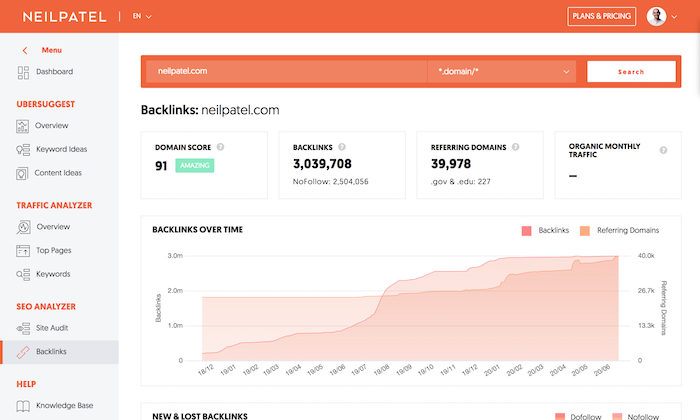
Link building is hard. But did you know that Google makes it easier for you?
Seriously… they do make it easier because they provide you with free tools.
No, I’m not talking about the ones you already use like Google Search Console and Google Analytics…
They actually have tons of other tools. Some you may have heard of, but I bet you don’t use them.
And today I am going to show you how you can build links using Google Alerts.
What is Google Alerts?
As the saying goes, if it isn’t on Google, it doesn’t exist.
Google is the most popular search engine in the world. Their database contains hundreds of billions of web pages and is over 100,000,000 gigabytes in size.
Because of their massive size, they are able to crawl web pages more frequently than any SEO tool including my own, Ubersuggest. This is precisely why you want to start using Google Alerts to build links.
So, what is Google Alerts?
As I mentioned above, they have a bigger database of web pages than any other link building or SEO tool. So, you’ll want to use their database to find easy link opportunities and ideally without wasting time digging through billions or even thousands of web pages.
Google Alerts allows you to create notifications on any subject, topic, or keyword.
So, when a new web page talks about anything that could be an easy link opportunity, you’ll get notified in an email.
Just like this one…
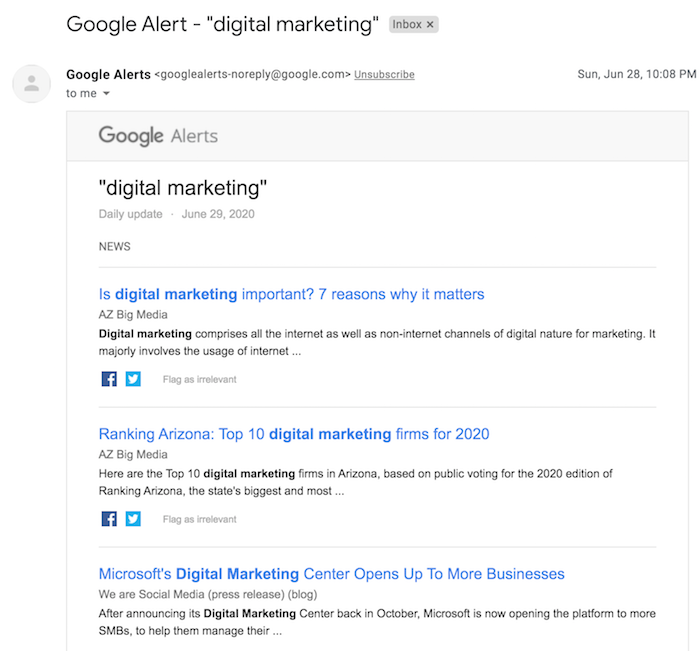
So, let’s set it all up step by step so you can get some backlinks.
How to set up Google Alerts
First, I want you to go here.
You’ll see a screen that looks like this (make sure you sign in at the top right).

I want you to type in your domain name without the www or the https part.
In my case, I would type in: neilpatel.com
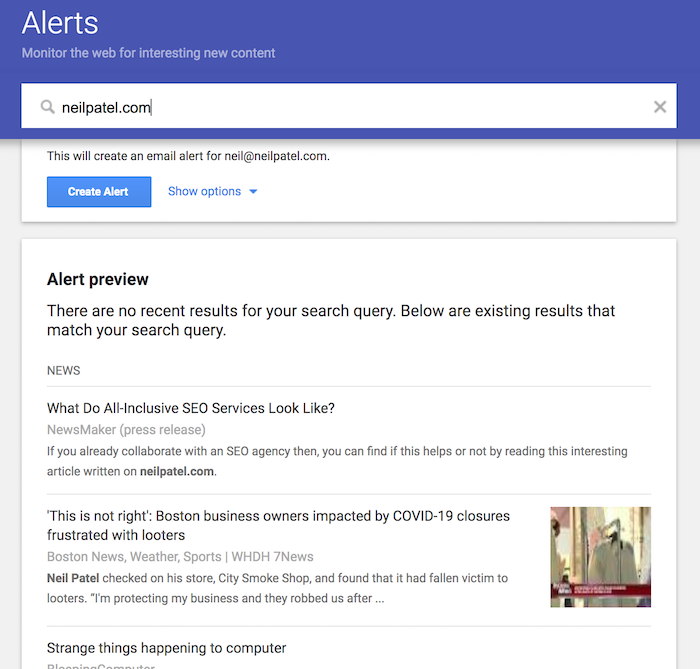
You may see an alert preview like the one above, but if you have a newer site you probably won’t see any results, which is fine.
Then I want you to click on the “Show Options” link next to the “Create Alert” button.
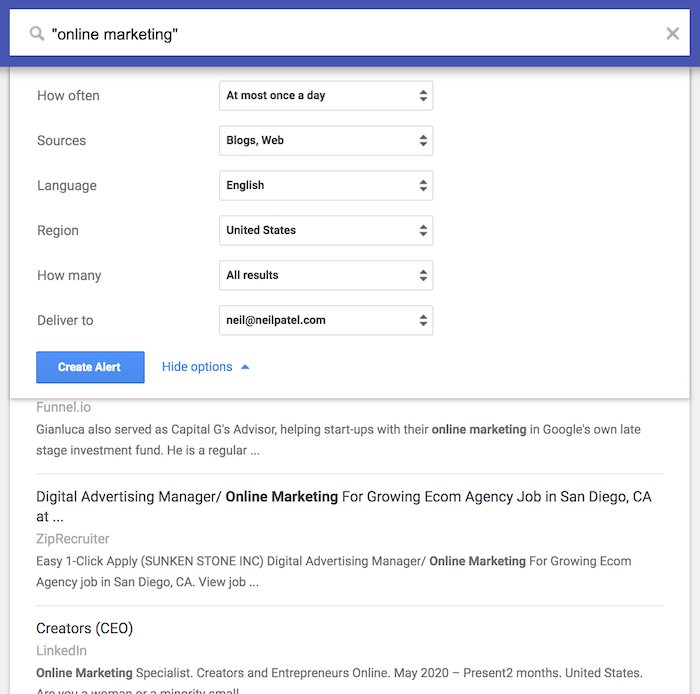
Your settings should match mine:
- How often – at most once a day
- Sources – Blogs, Web (select those 2 options, you don’t want news as an option as it tends to create more irrelevant results and we’ve found that it is harder to get news sites to link back to you)
- Language – English (or the language you are targeting)
- Region – any region (or you can select the country you are targeting although I recommend picking “any region”)
- How many – all results
- Deliver to – should be your email.
And then click “Create Alert.”
Up to once a day, you’ll get an email with a list of pages that mentions your website or domain.
I want you to repeat the process and create an alert for the following items:
- Your domain – you should have just done this.
- Brand name – in my case I would create an alert for “Neil Patel.”
- Product names – if you are selling any services or products you can create an alert around that. In my case, I would create an alert for “Ubersuggest.”
- Industry terms – create alerts for anything related to your industry. When people are talking about your space, it is an easy link opportunity. In my case, I would create alerts for the terms: digital marketing, online marketing, and SEO.
- Your email address – create an alert anytime someone gives out your email. Again, another easy link opportunity.
Here’s what mine looks like:
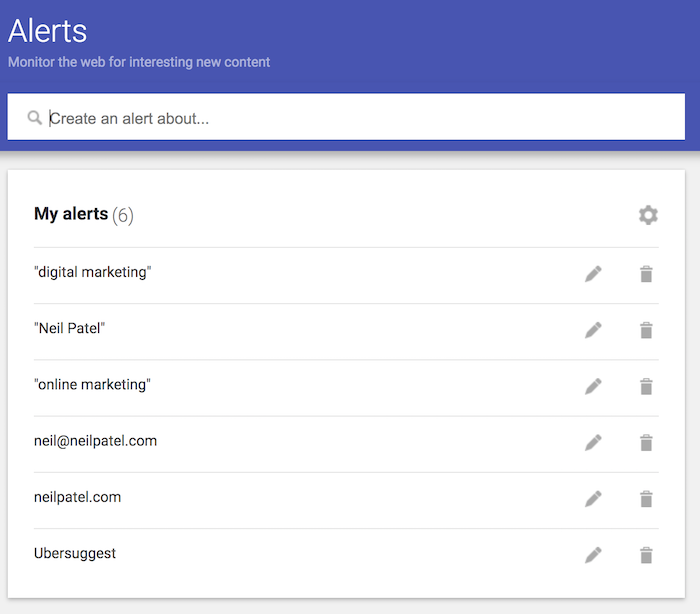
You’ll also notice for all of my two-word phrases I have quotation marks around them.
For example, I would not create an alert for: Neil Patel
But, I would create an alert for: “Neil Patel”
The reason being is that alerts for two-word phrases without quotes aren’t as relevant. For example, here are some alerts from the term: online marketing.
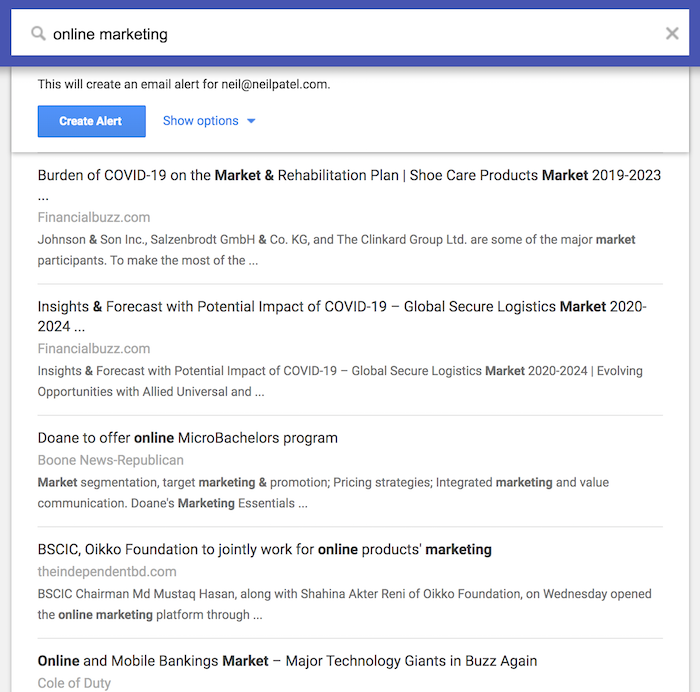
When I use quotes, here are the results.
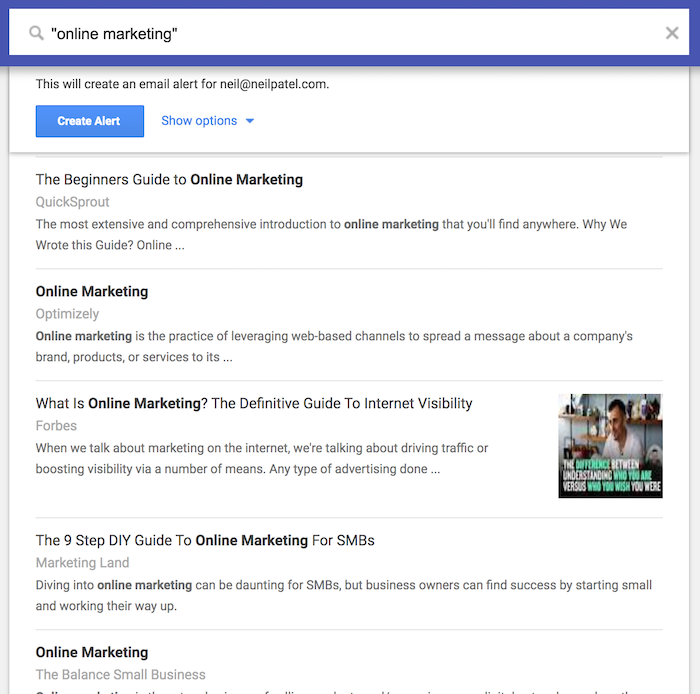
See the difference?
Getting links
Now that you have alerts set up, it is time to get links.
Keep in mind that when you get an alert email, someone could have already linked to you. So, not every alert will be a link building opportunity, but many will be.
Typically, more than half will be opportunities.
Depending on the alert type, some will be easier than others. So, let’s go over how to convert each opportunity into a link.
Your domain
You’ll find that a good portion of the mentions of your domain will contain a link back to your site.
For those, you don’t have to do anything as you’ve already got a link.
source https://neilpatel.com/blog/google-alerts/
No comments:
Post a Comment